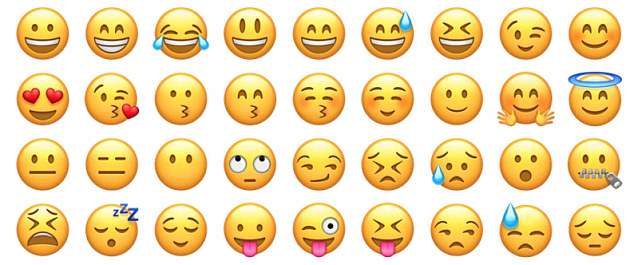In this day and age, much of our everyday communication takes place over text message.
But there’s one texting mistake that could be fuelling an unhappy relationship, a study has found.
Researchers discovered that the simple act of using emojis can boost feelings of closeness and relationship satisfaction within a couple.
So if you’re adverse to using the small icons, it could be a good time to start including them in your messages.
The team, from The University of Texas at Austin, recruited 260 adults aged between 23 and 67 to take part in their study.
They were randomly assigned to read 15 text message exchanges – all of which contained the same text but half included emojis while the other half had none.
Participants were instructed to imagine themselves as the sender of each message and to focus on their partner’s replies.
Analysis revealed that people rated partners who used emojis as more responsive than partners who communicated through text alone.
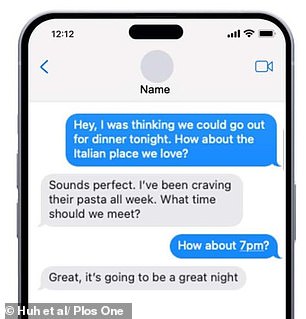
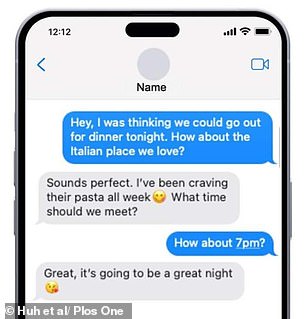
The text exchange (right) that includes emojis was more likely to prompt feelings of closeness and relationship satisfaction compared to exchanges without emojis (left)
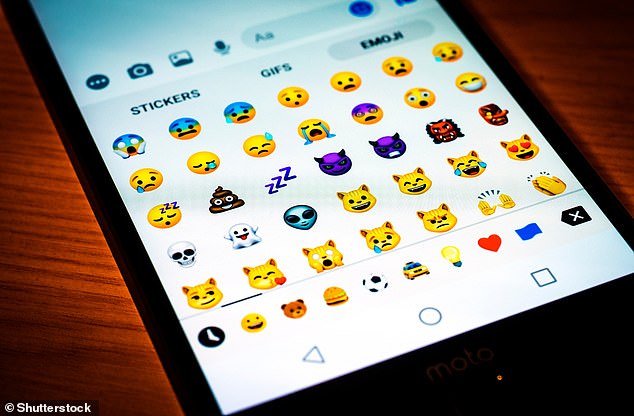
The team discovered there was no significant difference between the use of face and non-face emojis (file photo)
Emoji use was also linked with an increase in closeness and relationship satisfaction.
Surprisingly, there was no significant differences between the use of face and non-face emojis – for example, a smiley face and a love heart – suggesting that the type of emoji used may be less critical than previously thought.
Instead, it may be that the simple presence of emojis drives the perception of improved responsiveness and better relationships, the researchers said.
They explained that emojis may serve not only as expressive devices but also as signals of attentiveness and engagement.
Writing in the journal PLOS One they said: ‘The study revealed that emojis can boost relationship satisfaction by signaling emotional attentiveness.
‘Interestingly, it’s not the type of emoji but simply their presence that makes people feel closer to their partner.’
They said their findings may be explained through the fact that emojis convey emotions that can be difficult to express through text alone, making messages feel more personal and thoughtful.
Emojis can also enhance the emotional appeal of messages, they explained, evoking stronger emotional responses and making conversations livelier and more engaging.
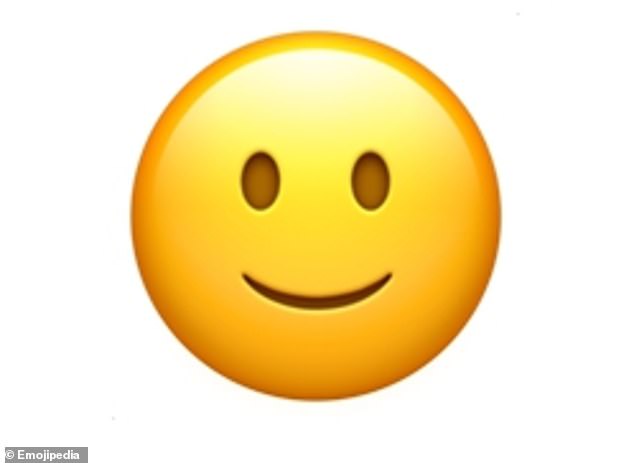
Adding a smiley face, like this one pictured, can make messages feel more personal and engaging, the team said

If you want to boost relationship satisfaction it could be worth including a few emojis in your text messages, the study reveals (stock image)
Finally, they can help clarify the tone and intent of a message, reducing the risk of misunderstandings.
‘Adding a heart, smiley face or other simple emoji can make messages feel more personal and engaging,’ they wrote.
‘Simple symbols like thumbs-up or sparkles can effectively convey positivity and engagement, even in casual conversations.’
Experts recently warned against sending the smiley face emoji to certain people.
While Millennials and older generations see the smiley face as an expression of happiness, Gen Z – aged between 13 and 28 – tend to interpret it as a sign of sarcasm or irony.
Erica Dhawan, author of Digital Body Language: How to Build Trust and Connection, No Matter the Distance, older generations tend to read emojis as representing the objects they literally portray.
That means a smiley face is a happy smile, a snowflake means that it is snowing, and an aubergine is referring to a type of vegetable.
But for those who grew up messaging over social media, emoji often have other meanings that have built up over time, she said.
Another emoji that can come across as sarcastic is the ‘sparkle’ emoji.
Older users often use these cute sparkles to express positive emotions such as gratitude or excitement.
However, for Gen Z, it is more likely to mean that a statement has a sarcastic tone, just like members of older internet messaging boards used to add ‘/s’ after a statement.
The same is true of the ‘thumbs up’ emoji, which is used to express positive affirmation by older users but is often seen as sarcastic by Gen Z.

